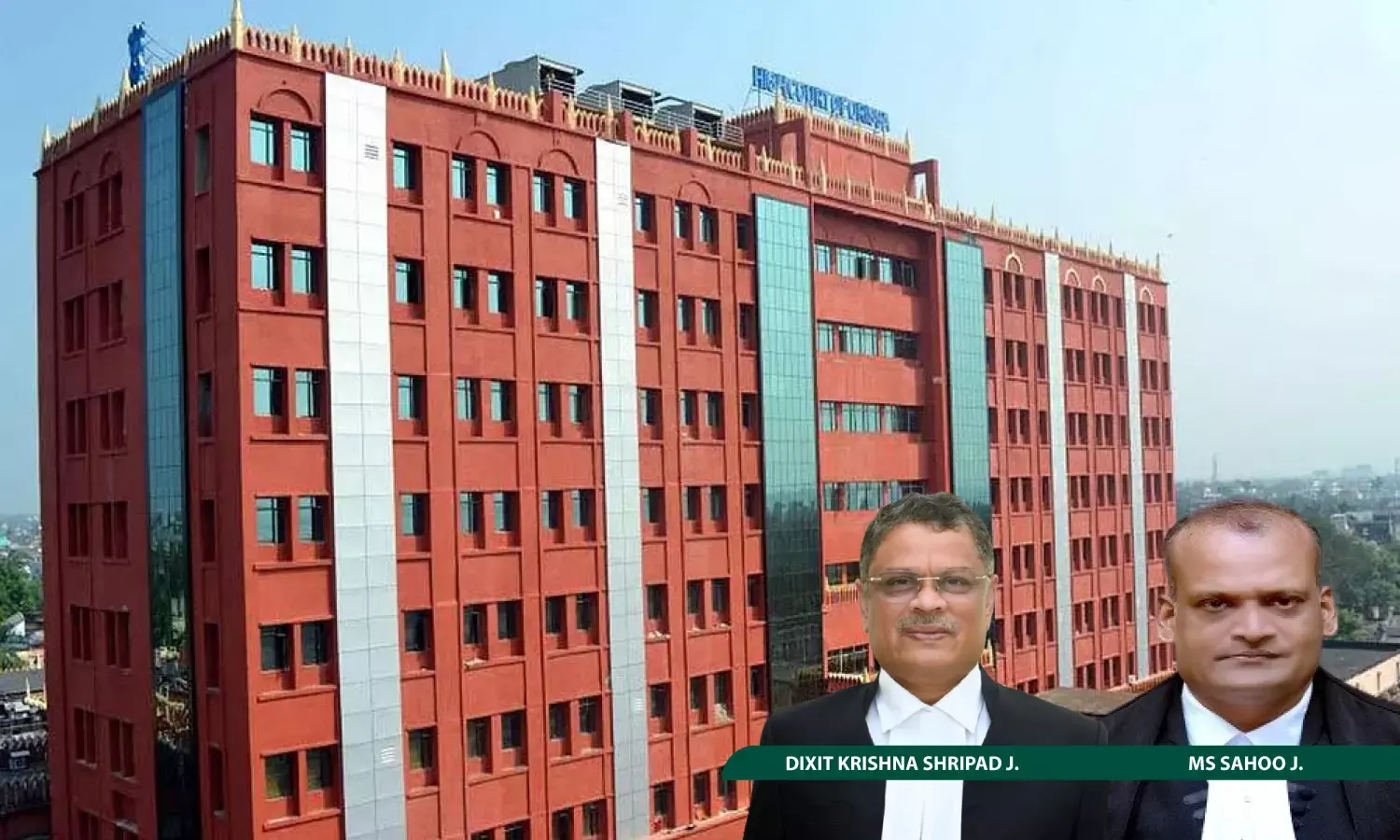Denying Maternity Benefit To Contractual Employee Is Abhorrent To Notions Of Humanity & Womanhood: Orissa High Court
The Court said that a policy granting maternity benefits must apply equally to female employees regardless of whether their appointment is regular or contractual.

Justice Dixit Krishna Shripad, Justice M.S. Sahoo, Orissa High Court
The Orissa High Court observed that maternity benefit is rooted in constitutional and human rights principles and cannot be withheld on the basis of employment category.
The court dismissed a writ appeal filed by the State Government challenging an order of the Single Judge that directed the authorities to grant maternity leave to a woman engaged on a contractual basis under the Health and Family Welfare Department.
A Division Bench of Justice Dixit Krishna Shripad and Justice M.S. Sahoo observed, “Denying maternity benefit to a contractual employee is abhorrent to the notions of humanity and womanhood. Constitutionally speaking, it offends Article 42 and Article 15(3) of the Constitution of India. There is no earthly reason as to why such a benefit should be denied to a woman employee, merely because she is not permanently appointed.”
The Court added, “When benefits of the Policy of this nature are extended, it is not that Court is rewriting the contract of employment, as sought to be contended by the learned AGA. This does not mean that Court cannot read the State Policy into the terms of engagement, in the absence of a contra indication in the contract itself. Obviously, there is no such contra intent in the contract.”
Additional Government Advocate Subha Bikash Panda appeared for the Appellants.
Brief Facts
The Respondent was engaged as a “Young Professional” in the Health and Family Welfare Department on a contractual basis. She had applied for maternity leave from August 2016 to February 2017, after delivering a child. Though supported by medical documentation, her application was rejected without assigning any reasons. She filed a writ petition seeking enforcement of her right to maternity leave.
The Single Judge allowed the petition and directed the authorities to grant her maternity leave in accordance with the State Government’s Office Memorandum dated March 31, 2012, which enhanced the ceiling of maternity leave to 180 days for female employees engaged on contract, subject to the condition that the leave period falls within the duration of the contract. Aggrieved, the State filed a writ appeal challenging the order, contending that the engagement being contractual, the benefit could not be claimed.
Reasoning of the Court
The Court held that maternity protection is a welfare entitlement flowing from constitutional guarantees and cannot be made dependent on whether the engagement is regular or temporary. It noted that the Government policy applied across categories of engagement and did not contain any clause excluding contractual employees.
The Court observed, “The idea of maternity leave is structured on ‘zero separation’ between lactating mother and breast feeding baby. These two important rights form an amalgam from which the State obligation to provide maternity benefits, such as paid leave to the employees within the permissible resources would arise.”
The Court noted that the benefits of such policies must be read into contracts where there is no clause to the contrary, stating, “We are of the considered view that there is no such contra stipulation in the terms of engagement that maternity benefit would not be admissible to the Respondent.”
It further held, “A Welfare State cannot be heard to say that a Policy of the kind has to be kept away regardless of its socio-welfare object to serve all classes of persons employed in the State, whatever be the nature of such engagement.”
The Court referred to the decision of the Supreme Court in Dr. Kabita Yadav v. Secretary, Ministry of Health & Family Welfare (2024), the Court observed that a contractual status cannot be used to deny maternity protection. It also invoked Article 11(2)(b) of CEDAW, which requires States to introduce paid maternity leave or comparable social benefits without loss of employment or status.
The Court remarked, “Denying maternity benefit on the basis of nature of employment is abhorrent to the notions of humanity and womanhood. Our Smrutikaaraas chanted “yatr naaryaastu pujyante ramante tatr devatah”, literally meaning that Gods rejoice where women are honoured. Such ideal things should animate the purposive interpretation of State Policy concerning the welfare of women.”
The Court observed, “India is a signatory to several International Conventions and one of them is CEDAW (Convention on the Elimination of All Forms of Discrimination Against Women). The State Policy conferring the benefit of maternity facilities is one that broadly promulgates inter alia the objectives of this Convention… The subject Government memorandum has absolutely nothing that runs counter to the paragraphs of CEDAW.”
Accordingly, the Court dismissed the appeal and upheld the decision of the Trial Court.
Cause Title: State of Odisha & Ors. v. Anindita Mishra (W.A.No.1074 of 2023)


